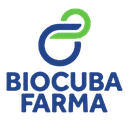Executive Secretary

VIII International Symposium on Chemistry and Pharmaceutical Sciences
SIPN
4th International Symposium "Chemistry of natural products”
Abstract
The development and use of biostimulants in agriculture is receiving great attention as an alternative to reducing the use of chemical stimulants in order to reduce environmental pollution. The microbiological synthesis of phytohormones constitutes a viable choice in the context of agroecological agriculture. In Cuba, plant growth biostimulator products have been developed, whose active ingredients are hormones produced by bacteria and fungi. Furthermore, the scientific literature recognizes the production of substances with an antibiotic nature, low molecular weight lipopeptides, flavonoid-type compounds and other families directly related to the antifungal and plant growth-stimulating activity of bacterial strains of the Azospirillum, Rhizobium and Azotobacter genus. For several years, at the Institute for Fundamental Research of Tropical Agriculture (INIFAT), research has been carried out related to the search for secondary metabolites from bacterial strains isolated from special ecosystems. Taking into account that the common bean is part of the diet of the world population and specifically in our country it is necessary to increase the yield of this crop in our fields using environmentally friendly technologies, we propose the objective of determining the qualitative chemical composition of the fermentation broth of the isolated Bacillus sp by UPLC-ESI-MSn. The spectrum in negative mode was selected due to the better sensitivity of the metabolites present in the fermentation broth. As a result of the study carried out, phenolic acids, flavonoids and compounds of the bacteriocin and macrolactin
Resumen
El desarrollo y empleo de bioestimulantes en la agricultura está siendo objeto de gran atención como una alternativa para la reducción de uso de estimulantes químicos con el fin de disminuir la contaminación ambiental. La síntesis microbiológica de fitohormonas, constituye una elección viable en el contexto de una agricultura agroecológica. En Cuba se han desarrollado productos bioestimuladores del crecimiento vegetal, cuyos principios activos son hormonas producidas por bacterias y hongos. Además, en la literatura científica se reconoce la producción de sustancias con carácter antibiótico, lipopéptidos de bajo peso molecular, compuestos del tipo flavonoides y otras familias directamente relacionados con la actividad antifúngica y estimuladora del crecimiento vegetal de las cepas bacterianas del género Azospirillum, Rhizobium y Azotobacter. Desde hace varios años, en el Instituto de Investigaciones Fundamentales de la Agricultura Tropical (INIFAT), se realizan investigaciones relacionadas con la búsqueda de metabolitos secundarios a partir de cepas bacterianas aisladas de ecosistemas especiales. Teniendo en cuenta que, el frijol común forma parte de la dieta de la población mundial y en específico en nuestro país se hace necesario incrementar el rendimiento de este cultivo a partir de tecnologías amigables con el medio ambiente nos proponemos como objetivo, determinar la composición química cualitativa del caldo de fermentación del aislado Bacillus sp mediante UPLC-ESI-MSn. Se seleccionó el espectro en modo negativo debido a la mejor sensibilidad de los metabolitos presentes en el caldo de fermentación. Como resultado del estudio realizado se identificaron ácidos fenólicos, flavonoides y compuestos del tipo bacteriocina y macrolactinas.
About The Speaker

Iraida Spengler Salabarria

Discussion




